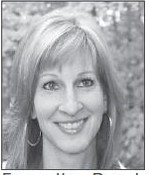Anti-Police Cities Reap What They Sow


WANTED: Trained security professionals to deal with elevated levels of crime and mayhem at risk to their own life and limb, while getting called racist oppressors and potentially thrown under the bus by elected officials.
This has become the de facto employment notice for police around the country, and, unsurprisingly, cops and prospective cops don’t find it particularly enticing. Why would they? America’s cities are feeling the effects of a years-long experiment in what would happen if nearly everyone celebrated a movement based on the idea that police are racist goons, excused rioting and explained away spiraling crime, and made it clear to cops that if they make a mistake, they will, at the very least, become instantly infamous. It hasn’t gone well.
Portland, Oregon, has been a veritable research lab for this experiment. The latest blow to the city is the mass resignation of the Portland Police Bureau’s Rapid Response Team, which is responsible for policing protests in the city — a challenging, endless, and literally thankless job. Rioting has become part of the fabric of urban life in Portland, where demonstrators have battled with cops nearly every other night since the death of George Floyd. The city’s leadership has been hapless, at best, in dealing with the chaos, and loud voices have been condemning the cops. After an officer in the unit was charged with a crime for striking a photographer in the head with a baton after he had pushed her to the ground, the members considered it a last straw. Por t land Ci ty Commissioner Jo Ann Hardesty kicked them on the way out the door, calling the resignations “yet another example of a rogue paramilitary organization that is unaccountable to the elected officials and residents of Portland.” She didn’t want them to quit, but instead to stay on the job so they could be fired.
Either way, she thinks it’s a great opportunity to show what “de-escalation in policing looks like” — effectively blaming the police for black-clad thugs constantly trying to burn things down. The same argument was made about federal officers during the Trump administration, but, lo and behold, the disorder continued even after federal forces stepped back and even after Joe Biden was elected president. The head of the Portland police union issued a stinging statement in reply to Hardesty, saying that members of the unit “did not volunteer to have Molotov cocktails, fireworks, explosives, rocks, bottles, urine, feces, and other dangerous objects thrown at them.” Nor, he continued, did they volunteer “to be subject to warrantless criticism and false allegations by elected officials, or to suffer through baseless complaints and lengthy investigations devoid of due process.” What’s happening in Portland’s riot unit is a microcosm of what’s happening everywhere. According to a survey by the Police Executive Research Forum, police resignations were up by 45% and retirements up 18% over the last year, while hiring has been slow. In other words, when we need more cops in response to rising crime, we are getting fewer. This is like cutting back on firefighters while a wildfire is raging or reducing the size of the Army while it is fighting a war. No rational person would want smaller forces right now,
continued from page
yet the elite culture, leftist politicians, and obnoxious street protestors are conspiring to shrink them.
The crux of the matter is the moral status of the police. The question is whether they fulfill an absolutely crucial role that deserves to be honored and supported to the hilt by public officials, who unstintingly back order on the streets as a foundational public good — or not.
There are signs that even liberal jurisdictions are beginning to get this (crime has a been a top issue in the New York City mayoral race). We aren’t going to keep or recruit good cops unless the job description, which has become so off-putting, is again worthy of the indispensability of the work.
Rich Lowry is editor of the National Review.
Synd., Inc.






out of
Posted on